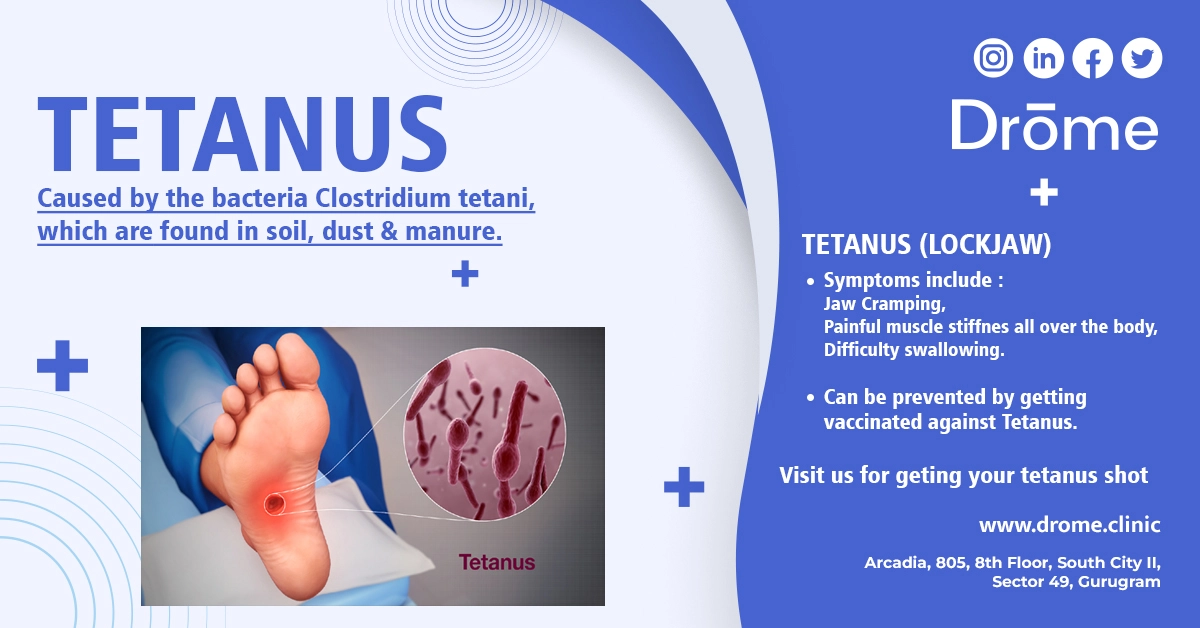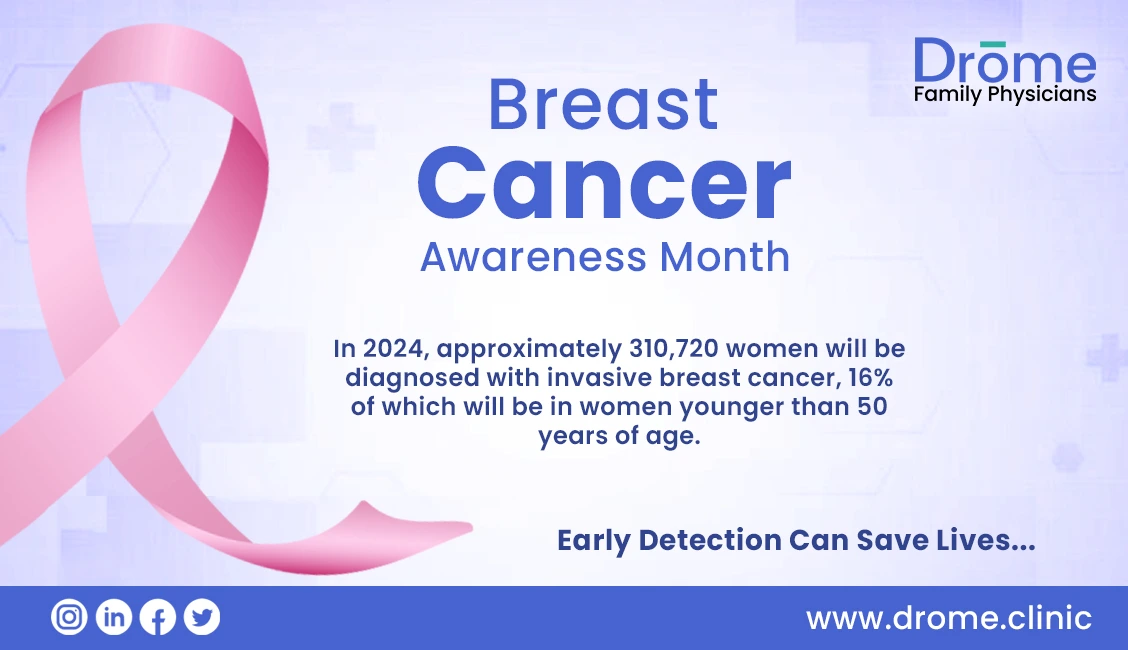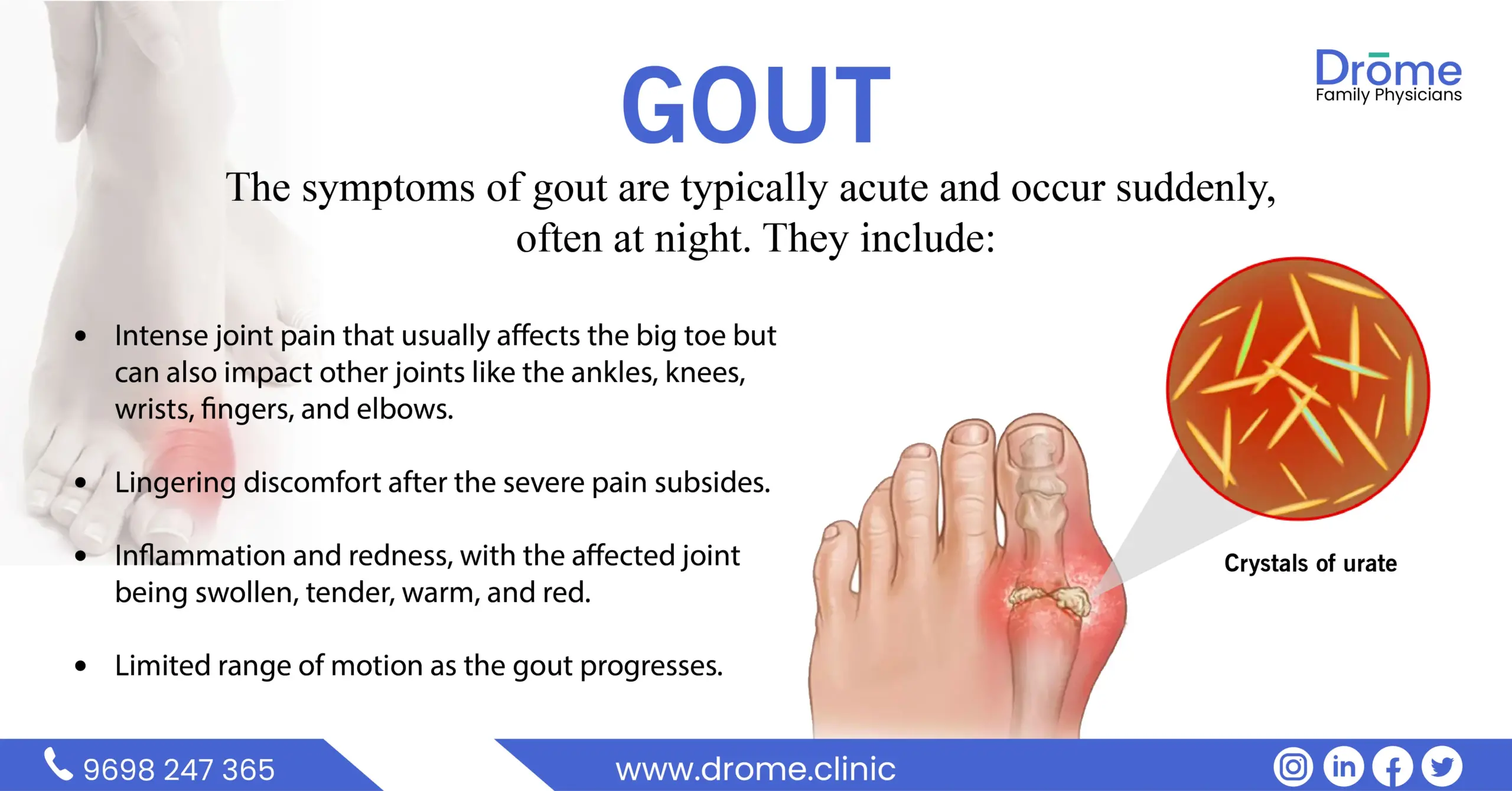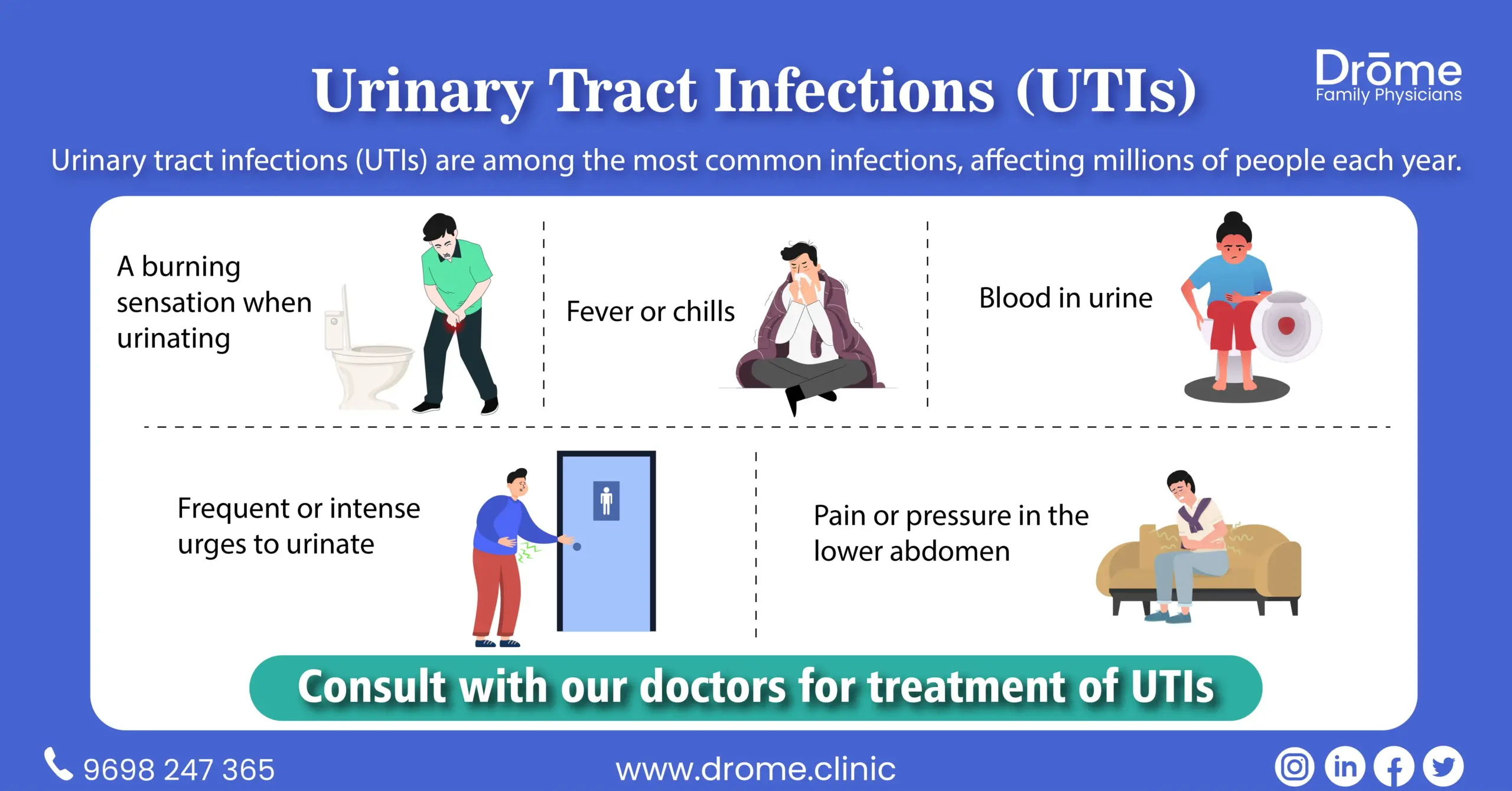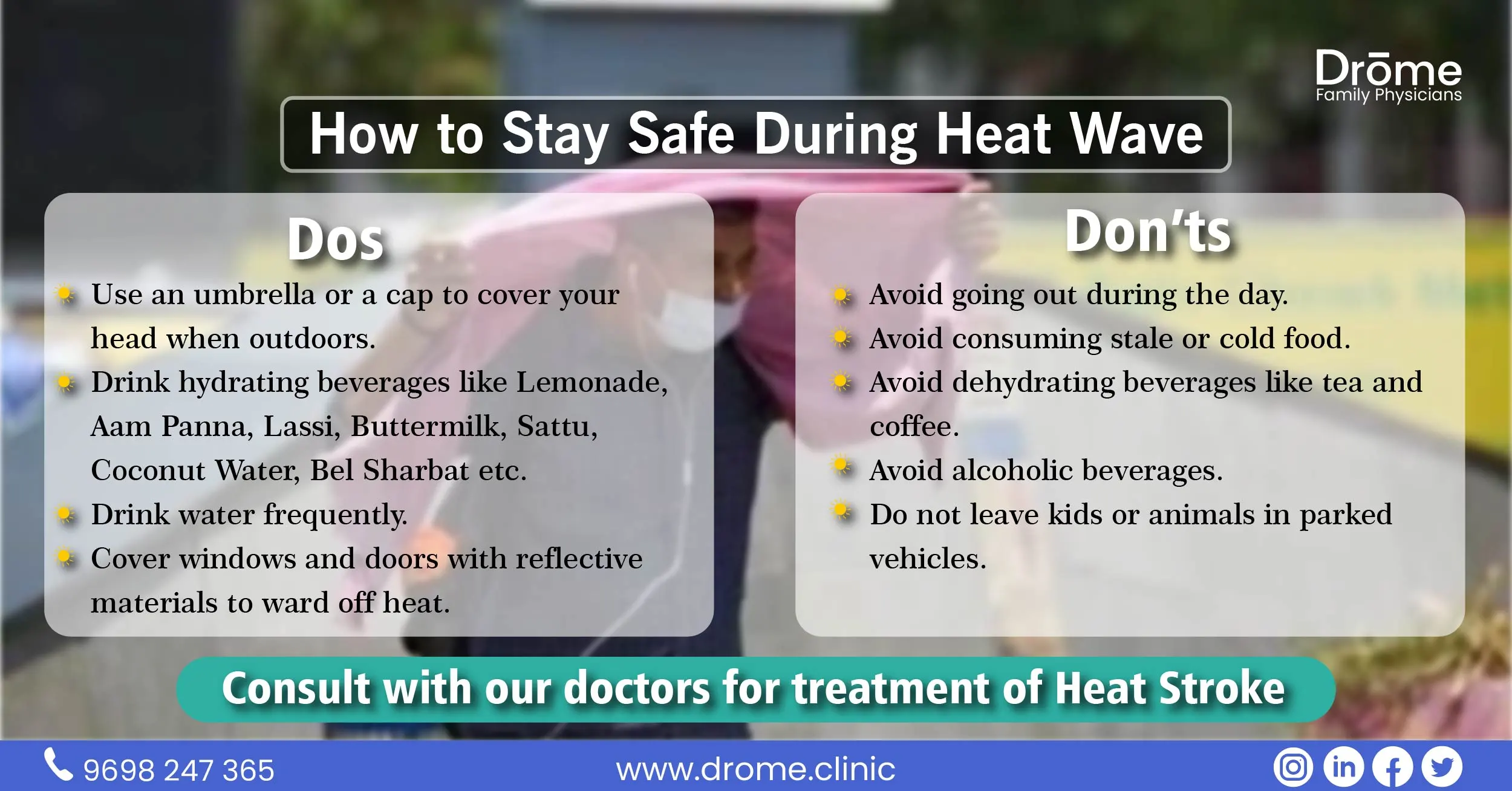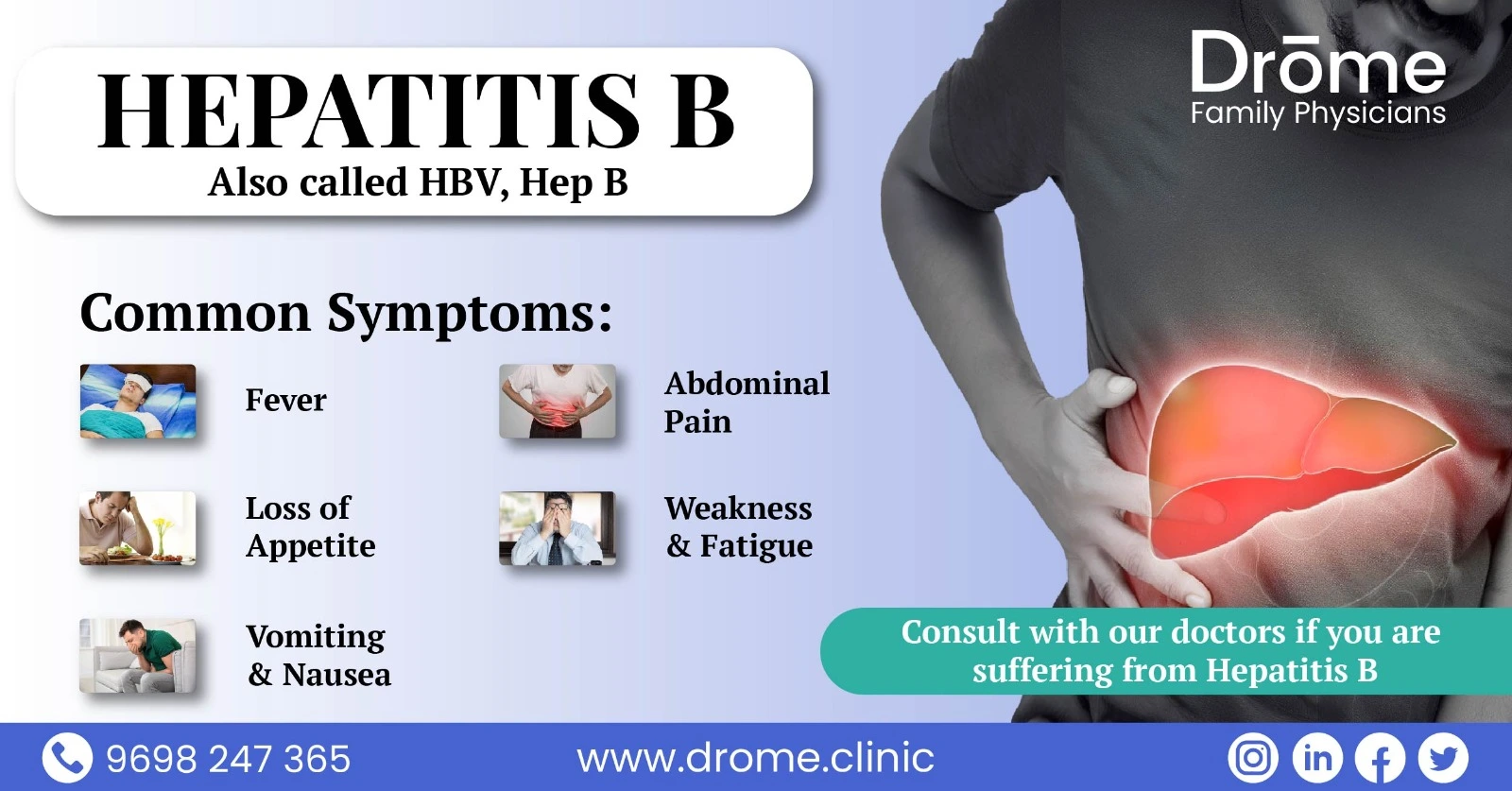Table of Contents
ToggleWhat is Tetanus ?
Tetanus is a serious illness contracted through exposure to the spores of the bacterium, Clostridium tetani, which live in soil, dust and manure.
The bacteria can enter the body through deep cuts, wounds or burns affecting the nervous system.
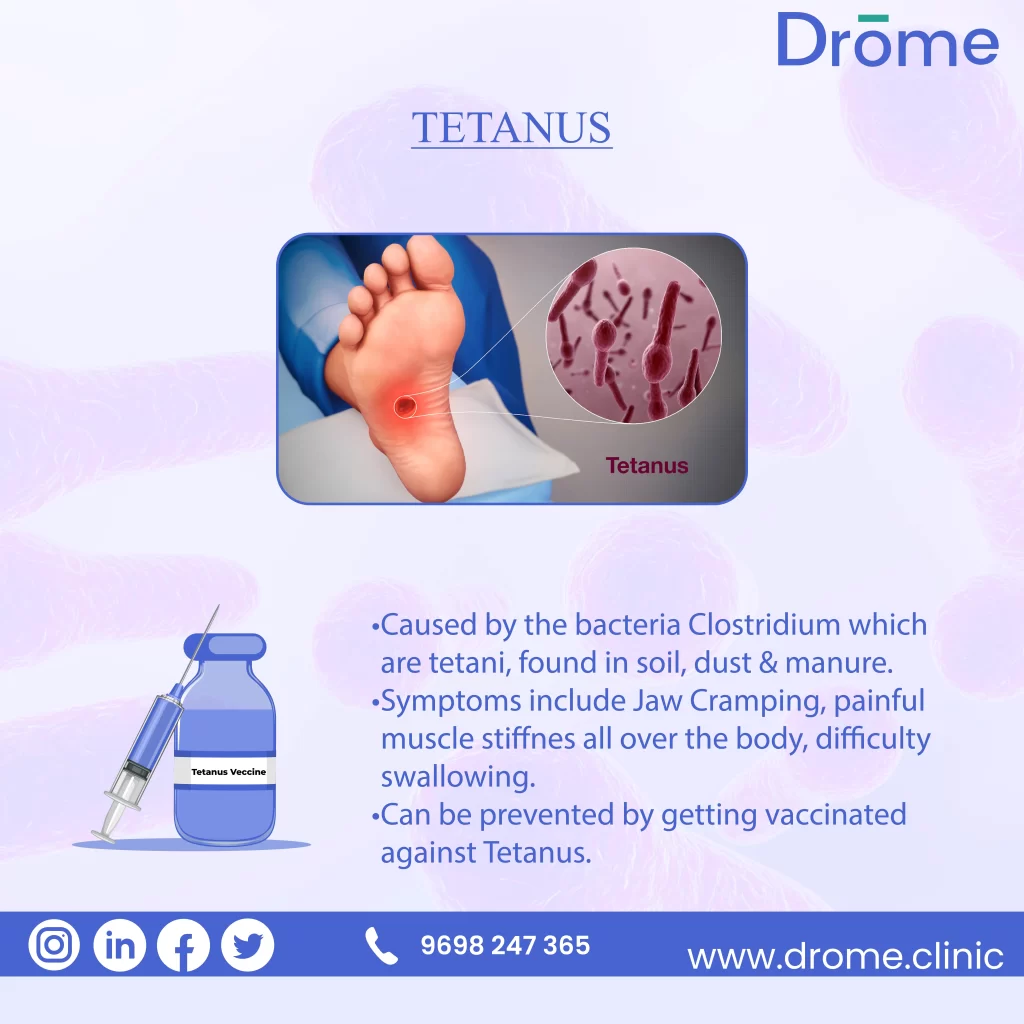
The infection leads to painful muscle contractions, particularly of the jaw and neck muscle, and is commonly known as “Lock-Jaw”.*
Unlike other vaccine-preventable diseases, tetanus is not spread from person to person.
Time from exposure to illness #
The incubation period — time from exposure to illness — is usually between 3 and 21 days (average 8 days). However, it may range from 1 day to several months, depending on the kind of wound.
Most cases occur within 14 days. In general, doctors see shorter incubation periods with:
- More heavily contaminated wounds
- More serious disease
Tetanus Symptoms #
Symptoms of tetanus include:
- Jaw cramping
- Sudden, involuntary muscle spasms — often in the stomach
- Painful muscle stiffness all over the body
- Trouble swallowing
- Seizures (jerking or staring)
- Headache
- Fever and sweating
- Changes in blood pressure and heart rate
Complications #
Serious health problems that can happen because of tetanus include:
- Laryngospasm (uncontrolled/involuntary tightening of the vocal cords)
- Fractures (broken bones)
- Pulmonary embolism (blockage of the main artery of the lung or one of its branches by a blood clot that has travelled from elsewhere in the body through the bloodstream)
- Aspiration pneumonia (a lung infection that develops when things like saliva or vomit accidentally go into the lungs)
- Breathing difficulty
Tetanus can lead to death (1 to 2 in 10 cases are fatal)
Tetanus Prevention #
Vaccination and good wound care are important to help prevent tetanus infection.
Doctors can also use a medicine to help prevent tetanus when someone is seriously hurt and isn’t up to date with tetanus vaccination.
Good wound care
Immediate and good wound care can also help prevent infection.
- Apply first aid to even minor, non-infected wounds like blisters, scrapes, or any break in the skin.
- Wash hands often with soap and water or use an alcohol-based hand rub if washing is not possible.
- Consult your doctor if you have concerns and need further advice.
Tetanus Disease Vaccination #
Being up to date with tetanus vaccination is the best tool to prevent tetanus. Protection from vaccines, as well as a prior infection, do not last a lifetime. This means people who had tetanus or got vaccinated before still need to get vaccinated regularly to keep a high level of protection against this serious disease.
These vaccines help protect against tetanus and also provide protection against other diseases:
- DTaP protects against diphtheria, tetanus, and pertussis (whooping cough)
- DT protects against diphtheria and tetanus
- Tdap protects against tetanus, diphtheria, and pertussis
- Td protects against tetanus and diphtheria
CDC recommends tetanus vaccines for people of all ages
The vaccine recommended for someone depends on their age.
- Babies and young children should get five shots of DTaP between the ages of 2 months and 6 years. Children 6 years old and younger who should not get whooping cough vaccines can receive DT for protection against diphtheria and tetanus.
- Preteens should get one shot of Tdap between the ages of 11 and 12 years.
- All adults who have never received one should get a shot of Tdap. This can be given at any time, regardless of when they last got Td. This should be followed by either a Td or Tdap shot every 10 years.
Visit our Drome clinic for further information and vaccination against Tetanus
*WHO, #CDC

